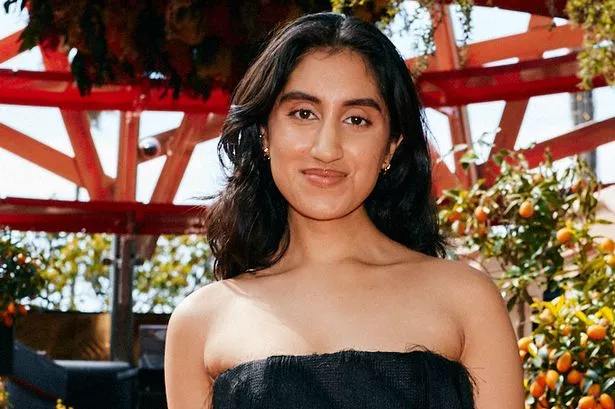Ambika Mod has shared her personal experiences and insights about being a brown woman in the film industry a year after the enormous success of her lead role in Netflix’s One Day.
Netflix’s One Day star Ambika Mod has opened up about her experience navigating the film industry as a woman and those who compare her career trajectory to her former co-star Leo Woodall. The actress shared her candid thoughts after new survey research from Mastercard revealed that women in film feel progress is reversing, but that younger generations are best poised to affect positive change.
Speaking at a panel event alongside film director Nisha Ganatra (Freakier Friday), Mod said: “It’s great to see such a positive shift on screen, as the new research from Mastercard reflects. There’s a real sense that change is taking hold, and that people are starting to believe in a more equal future for women in film.”
“I’ve seen this in my own experience, and doors are opening,” she continued. The findings serve as a reminder that we are still in the dark, especially in the back-up roles. We must ensure opportunities exist across all branches of the industry if we want lasting change.
Following the success of the Netflix miniseries, Mod has gone on to star in the television series The Stolen Girl and hit movie Black Bag, alongside Cate Blanchett, BAFTA award winner Marisa Abela and fellow Netflix alum Regé-Jean Page, and was also named on the 2024 Time100 Next list recognising rising influential leaders.
READ MORE: A-list actors bring stories to life for International Booker Prize video series
But despite her incredible success, her career trajectory is often compared to her former One Day co-star. Woodall’s career has skyrocketed since the series, starring as the lead in Prime Target for Apple TV+ and recently earning a role in the upcoming Anthony Bourdain biopic, Tony.
Speaking to British GQ, Mod shared she doesn’t have access to the same “privilege” as Woodall, though their careers are often compared. She said: “It’s mad because we wouldn’t be going for the same roles at all, and we’re very different people. I think we’re going to have very different careers. If I compare myself to someone like Leo, I’m always going to come up short, because there’s a privilege there that I don’t have access to.”
In the interview, she revealed that she still struggles to avoid being compared to white peers. In this sector, being brown is not very simple. The opportunities are different for you. You are not granted the same ascension.
Despite her success on One Day and BBC’s This is Going to Hurt, Mod says she still feels she has to prove herself in a way white actors do not. “I’ve been the lead of two very successful, critically-acclaimed TV shows and I still feel like I have to keep on proving myself. A lot of my white peers don’t really have to tackle that.”
Women in Film research from Mastercard also found that despite improved screen representation of women, women are more under pressure to “prove themselves” than their male counterparts, particularly in in-house roles.
The future is still promising for Mod, with a number of exciting projects afoot, including two large theater productions. Every Brilliant Thing, Mod’s one-woman show, will soon begin in the West End, with a performance in Porn Play at the Royal Court in the coming weeks.
Source: Mirror



Leave a Reply